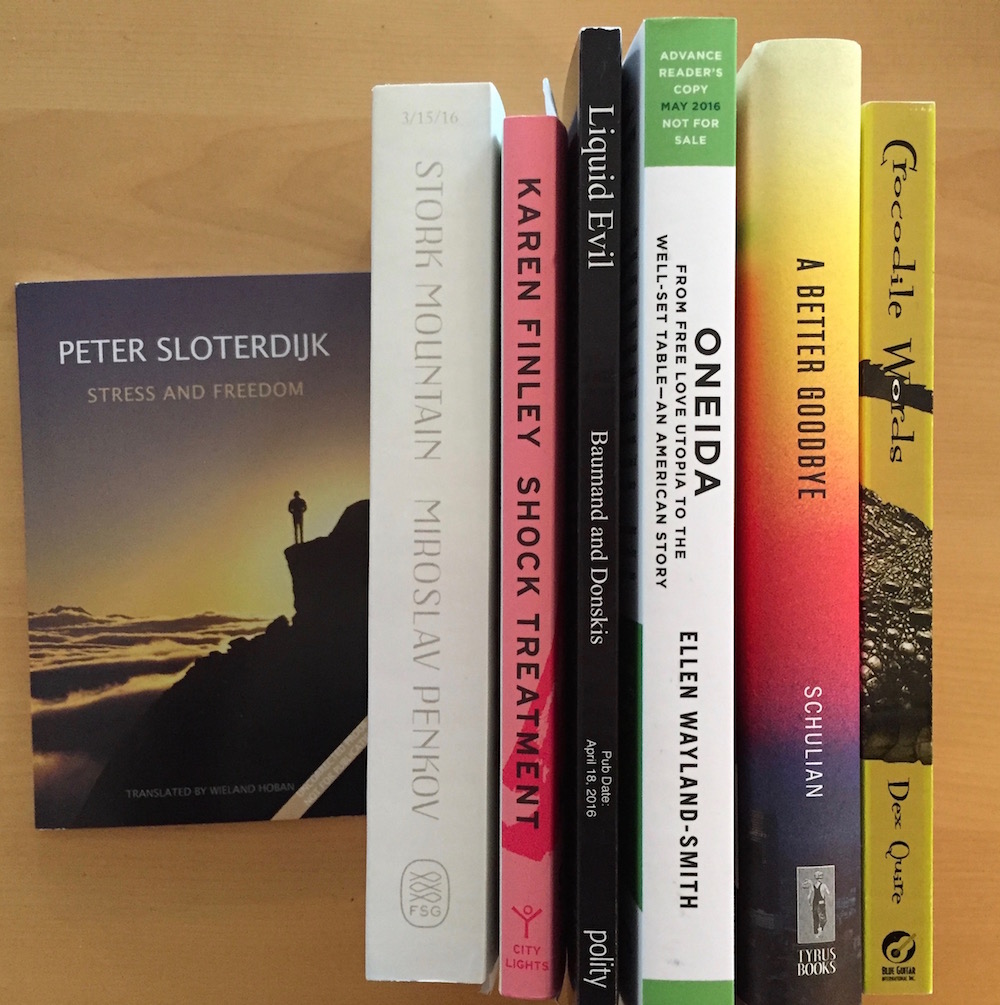Teju Cole published a poem at the New Inquiry in response to today's terrible news out of San Bernardino. It's a moving reminder that poetry can respond to current events, can be as timely as a thinkpiece, can be so much more meaningful than a hot take on Twitter.
The fabulous Short Run Comix & Arts Festival is throwing a holiday fundraising art auction, and it's packed with all sorts of one-of-a-kind gift ideas. Highlights include:
A signed copy of Seattle cartoonist Colleen Frakes's memoir Prison Island, along with a piece of original art. (Read my review of Prison Island here.)
A watercolor painting by newly local cartoonist Sarah Glidden.
An original portrait from Seattle cartoonist Kelly Froh.
Erotic greeting cards from Seattle comics legend Ellen Forney.
If you hate eBay auctions, every single one of these offers comes with a "buy now" option that will save you from the drama of waiting to see if you've been auction-sniped. They're all unique gifts, and they benefit a great cause. The auction closes on December 4th, so get in there right now.
At 2 pm, Bainbridge Island author Jonathan Evison, author of novels like This Is Your Life, Harriet Chance! and the excellent The Revised Fundamentals of Caregiving will be doing an Ask Me Anything on Reddit. Follow this link and, well, ask Evison anything. In my experience, he's always been remarkably open in interviews, from the business side of things to what he thinks of other writers. I can pretty much guarantee he'll be painfully honest, which makes this an interesting opportunity for those burning questions you've always wanted to drop on a novelist.
A big feud over A Little Life
In the December issue of the New York Review of Books, Doubleday executive editor Gerald Howard takes on reviewer Daniel Mendelsohn for his review of the Doubleday novel A Little Life. Howard's letter concludes: "At bottom Mendelsohn seems to have decided that A Little Life just appeals to the wrong kind of reader. That’s an invidious distinction unworthy of a critic of his usually fine discernment."
This is not the only charge levied against this particular reviewer and this particular review. As Bookforum noted, Mendelsohn was recently accused by the author Jennifer Wiener of "Goldfinching," or diminishing popular books written by and for women.
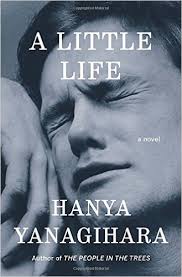
Ideally, a reviewer should always be able to parse a book from its fans. But sometimes that's impossible; sometimes a book's success becomes part of the story of the book, as inextricable as its plot and main characters. And sometimes a reviewer has to address an author's persona in the course of a review. (Here's a great example of that.) But when a review takes on the supposed audience of the book as part of a broader argument against the supposed self-victimization of college students, as Mendelsohn's review does, that's perhaps a step too far. It's one thing to extrapolate from a book's themes into a larger conversation about society. It's another thing to imagine an audience for the book and then use that imagined audience as an example of what's wrong with society.
I also find it distasteful that Mendelsohn's review overtly refers to the gendered perspective of A Little Life as "bear[ing] a superficial resemblance to a certain kind of 'woman’s novel' of an earlier age" and then immediately accuses the book of having the structure "of a striptease." The sexist condescension there — the diminishment of the book, first as a new version of a "woman's novel," and then as a stripper — feels very purposeful to me.
As Howard notes at the beginning of his letter to the editor, authors should almost always leave negative reviews alone. Rarely will you encounter a good reason to argue with a critic over a negative review; you're not going to change the critic's mind, and the argument is going to make the author look petty and small. But in this case, I'm glad that Howard stepped forward. Mendelsohn crossed a couple of very important lines in his review, and Howard was right to carry this conversation over into the public sphere.
Holiday gift book recommendation #1: Thing Explainer
(Every Wednesday in December before Christmas, we’ll talk to a Seattle bookseller about the gift book they’re most excited about this season.)
Alex Gholz, bookseller at Third Place Books Ravenna, has eclectic tastes. His recent reading of James S.A. Corey’s Leviathan Wakes put him on a brief space opera kick — he’s right now reading Alatair Reynold’s Revelation Space, and after that he’s planning to dive into Seth Dickinson’s political fantasy novel The Traitor Baru Cormorant. But just when you think you’ve got Gholz’s reading tastes figured out, he casually mentions that he just finished his first Oliver Sacks book, Seeing Voices, and then he can’t say enough good things about Lev Golinkin’s memoir A Backpack, a Bear, and Eight Crates of Vodka, which he encountered as part of “an Eastern European history binge.”
So what kind of a gift book does a sci-fi lover who adored both Oliver Sacks’s history of ASL and a hilarious account of early-90s eastern European immigration recommend to shoppers looking for the perfect gift book? Gholz is a passionate advocate for XKCD cartoonist Randall Munroe’s new book Thing Explainer: Complicated Stuff in Simple Words.
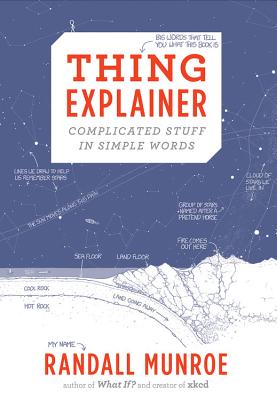
Gholz says he “grew up on David Macaulay’s The Way Things Work. I spent days and weeks and months looking at that book, well into adulthood.” Thing Explainer, he says, is like “a new edition of Macauley’s book, in some ways.”
So who is Thing Explainer for? “It’s a book that both parents and children can enjoy together and individually. You’ll spend hours going over” the illustrations, Gholz promises, which are “drawn almost like blueprints.” He continues, “I think this book would be perfect for basically any parent who has a child between maybe ages 7 to twelve and wants to share an experience of iguring out what’s going on with science today.” He can say from experience it's a book that even an intellectually voracious reader will return to again and again.
Two housekeeping issues we'd like to share with our readers:
If you're a Hugo House member, you can now sign up for "The You Review of Books," a book reviewing class taught by myself and Seattle Review of Books co-founder Martin McClellan. We hope to teach you how to communicate with art, how to be a better reader, and how to appreciate book reviewing as an art form. If you're not a Hugo House member, you'll be able to sign up for the class starting next week. But you really ought to be a member of the Hugo House.
Next week, Martin and I will be reading at Phinney Books to celebrate the one-year anniversary of the Dock Street Salon, a very fun reading series that combines readings and informal chats in a laid-back setting. If you have any questions about this here website or our upcoming class, please drop on by. We hope to see you there.
Sitting in the middle of a clock
Published December 01, 2015, at 11:51am
Mairead Case's debut novel "is a love story if a love story means trying to become someone who doesn’t always feel shut off."
The fifth issue of Seattle-based literary magazine the James Franco Review, in which every submission is treated "as if we were all James Franco, as if our work was already worthy of an editor’s attention," is rolling out now. The first piece of issue five to see publication is a collection of poems from Aricka Foreman, including "Monologues in Bars By White People With Good Intentions" and the especially haunting "Consent Is A Labyrinth of Yes." Go take a look, and keep an eye out for the rest of issue five, which will be rolling out in the days to come.
This month, we celebrate the life of Madeline DeFrees
Last month, the Seattle poetry world lost one of its giants when Madeline DeFrees passed away. DeFrees was one of the most vibrant, evocative poets the Pacific Northwest has ever produced, and the Seattle Review of Books wanted to find some way to honor her life, and to bring her work to new audiences. Here’s one way to do that: every Tuesday for the month of December, we’ll present a DeFrees poem. We’re going to move chronologically through her body of work with every passing week of the month.
The first poem we chose to highlight, “Matinal,” is from DeFrees's 1964 collection From the Darkroom, and it’s a great early exploration of the themes you’ll find in all her work: that friction between the duty of religion and the siren call of poetry, the single lines that themselves could be their own poems (“usual as air” is just about as near to a perfect line of poetry as I can recall reading,) the clarity of the imagery (the sound of the clock, the early morning “tryst,” the “soggy May” before the sun rises.)
I want to personally thank Copper Canyon Press co-publisher Joseph Bednarik for generously giving us permission to run these poems of DeFrees’s this month. Copper Canyon is that rarest of publishers: they understand the sacredness of their charge, the fact that they are not the owners of the words they publish so much as their temporary stewards. Quite simply, DeFrees could not have chosen better guardians for her legacy; Copper Canyon will keep her poems alive for generations to come.
Come January and the new year, we will continue our charge to run new poems by Seattle-area poets. We’ve been publishing an excellent chain of poets since July, and this temporary detour into DeFrees’s work is not so much a distraction from that mission as a chance to renew our focus and remind us why it’s necessary to publish the works of Seattle poets. The Seattle tradition of poetry may not be as long as, say, the New England tradition, but it is a proud story, built on the works of immortal geniuses like DeFrees. There are hundreds of poets out there right now, continuing her work. And we’ll continue to bring their work to you in the months and years to come.
Matinal
Four-thirty, morning. Unearthly time
by nuns' or any standard;
almost, this soggy May, monastic.
I close my door on sleep
for other sanctuary,
preceded by the birds
who long ago devised
their daylight saving.
Now, saving the daylight,
no other shape abroad
but the swinging step of rain
on rain-soaked turf.Unbreakable as doom
five streetlamps watch me come
to keep my tryst.
Nailed each to a man-made cross,
usual as air,
we watch, mechanical,
dawn light dispelling glare;
hooding our early brightness in a cloud
tempers the shock
and orders lonely emanations
by a clock.
Be sure to read these Nicole Sarracco poems
Our thanks to sponsor Chatwin Books, who wanted to make sure you were familiar with Nicole Sarracco. They're publishing her debut novel Lit by Lightning, and to celebrate that, we're running three poems from her 2004 debut book of poems Karate Bride.
Chatwin Books is a local affair, tackling ambitious publishing projects of high quality. Sarracoo is a unique voice, and Karate Bride is a great way to get to know her work before reading Lit by Lightning.
They're our partner is bringing you new content everyday, and making sure that internet advertising isn't all bottom feeders. We want nothing less than to make internet advertising 100 percent less terrible, and we thank Chatwin Books for being our partner in this.
The road to Donald Trump is paved with decency
Published November 30, 2015, at 1:25pm
Jon Meacham has delivered the unthinkable: he's written a compelling biography of George H.W. Bush. But is Meacham too close to his subject? What does the life of the elder Bush have to teach us about the current abysmal state of the Republican Party?
Dianna Dilworth at GalleyCat writes:
A Wisconsin elementary school has cancelled the reading of a children’s book about a transgender girl after parents threatened to sue claiming that the reading would be a violation of parents rights.
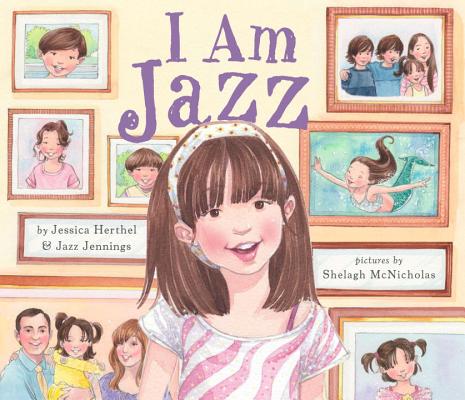
The book in question is I Am Jazz, written by Jessica Herthel and Jazz Jennings, and illustrated by Shelagh McNicholas. These bigoted parents need to understand that banning a book never works; it only results in more copies sold and increased interest. A few more of these moronic attempts to ban the book from the public conversation will likely result in I Am Jazz landing on the bestseller list, where it belongs.
The publishers' dilemma
Published November 30, 2015, at 12:01pm
We live in an age where anyone can publish a book in a matter of minutes. Why, then, do we need publishers?
Your Week in Readings: The best literary events from Nov 30 - Dec 6
MONDAY Happy new week! I’m sorry to report that tonight’s reading with xkcd’s Randall Munro and Hank Green at Town Hall is sold out. Instead, you should visit Campion Ballroom at Seattle University for Jon Meacham. Meacham is an excellent presidential biographer, and his newest book is about George Herbert Walker Bush. Destiny and Power is a much-needed spotlight on the somewhat-reasonable-in-retrospect man who sired two dullards with presidential aspirations.
TUESDAY Seattle Arts and Lectures brings poet Srikanth Reddy to McCaw Hall. Check out the beginning of Reddy’s poem “Burial Practices”:
Then the pulse.
Then a pause.
Then twilight in a box.
Dusk underfoot.
Then generations.
Whoooa. That's some good stuff. According to press materials, “Reddy's talk will consider a range of questions concerning poetry and poetics, including theories of likeness, ekphrasis, technology, and wonder.” Sold!
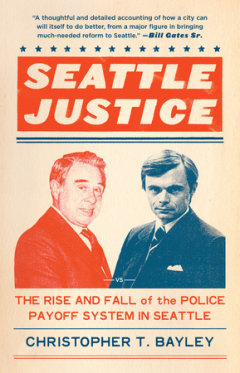
THURSDAY Tonight’s pick for best event is Pay Dirt at the Rendezvous. Local writers Anca L. Szilágyi, Bernard Grant, Emily Bedard, Martha Kreiner, and Matthew Schnirman “explore art, money, and desire in new fiction and poetry.” This event will be hosted by Poetry Northwest’ magazine’s Kevin Craft, who is an excellent host. It’s always interesting when writers talk about money.
FRIDAY Elliott Bay Book Company hosts a launch party for Mairead Case’s See You In the Morning, which is a book about three seventeen-year-olds told in paragraph-length poems.
SATURDAY It’s time for Urban Craft Uprising at Seattle Center. Why not go and support Seattle’s biggest and best craft show? They’ve got plenty of paper craft on display, including some gorgeous letterpress printers.
SUNDAY University Book Store’s Bellevue branch hosts authors Maia Chance, Janine A. Southard, Raven Oak, and G. Clemans. Their anthology, Joy to the Worlds, is a collection of holiday-themed sci-fi and mystery short stories. (The publishers of this book sponsored the Seattle Review of Books last month, but they did not pay for this recommendation; I think it sounds like the best event of the day.) Go and have a very genre holiday.
The Sunday Post for November 29, 2015
The Most Misread Poem in America
David Orr, in an excerpt from his book The Road Not Taken: Finding America in the Poem Everyone Loves and Almost Everyone Gets Wrong, on Robert Frost's best known poem.
Frost’s poem turns this expectation on its head. Most readers consider “The Road Not Taken” to be a paean to triumphant self-assertion (“I took the one less traveled by”), but the literal meaning of the poem’s own lines seems completely at odds with this interpretation. The poem’s speaker tells us he “shall be telling,” at some point in the future, of how he took the road less traveled by, yet he has already admitted that the two paths “equally lay / In leaves” and “the passing there / Had worn them really about the same.” So the road he will later call less traveled is actually the road equally traveled. The two roads are interchangeable.
This Is How You Become an Editor
Mensah Demary on the kind of work writers do, so that they can do the sort of work that writers do.
I was gifted, or cursed, with a brain somewhat wired for business. My father knew as much about me; when, in 2007, I said to him, “Maybe I should finish undergrad, then get an MFA,” he retorted, “You should probably get an MBA instead.” I took this advice as an insult, or a devaluing of my creative desires, but I couldn’t ignore it. I was raised by this man, directed through life as child with the goal of growing into a self-sustaining adult.
Rahawa Haile’s short stories of the day, of the previous week, for November 28, 2015
Every day, friend of the SRoB Rahawa Haile tweets a short story. She gave us permission to collect them every week. She's archiving the entire project on Storify
Short Story of the Day #323
I walked 16 miles with a full pack yesterday, and my feet feel fine today. This is progress. I am progressing.
— Rahawa Haile (@RahawaHaile) November 22, 2015Short Story of the Day #324
Meron Hadero's "Mekonnen aka Mack aka Huey Freakin’ Newton"
https://t.co/TnEXQhLhpn pic.twitter.com/t3ftyuuyX3
— Rahawa Haile (@RahawaHaile) November 23, 2015Short Story of the Day #325 and 326
It was a garbage day full of garbage people and I need some quiet. Here's a cat. pic.twitter.com/3LSLwNXYCF
— Rahawa Haile (@RahawaHaile) November 24, 2015Short Story of the Day #327
Margaret Divish's "Cycle Class"
Scintilla
https://t.co/rdqCzp4Ump pic.twitter.com/xQwK08Ygq0
— Rahawa Haile (@RahawaHaile) November 26, 2015Short Story of the Day #328-330
The rain has started. Fifteen miles to go. pic.twitter.com/EiQhZY0xgH
— Rahawa Haile (@RahawaHaile) November 28, 2015The Help Desk: Should my boyfriend and I merge our bookshelves?
Every Friday, Cienna Madrid offers solutions to life’s most vexing literary problems. Well, except for this Friday because it's Thanksgiving weekend and Cienna's probably drunk somewhere. We didn't want to leave you hanging, dear reader, so we thought we'd republish the very first Help Desk column from way back in July, in case you didn't read it. Next week, Help Desk will return. Do you have questions for Cienna? Send them to advice@seattlereviewofbooks.com.
Dear Cienna,
My boyfriend and I are moving in together next week. I'm very excited about this, and I'm confident it's the right move. But we just had our first fight over a moving issue, and it's something I feel very strongly about: he wants to merge our book collections together. I want to keep our shelves separate. It's not that I fear intimacy; I'm 95 percent sure we're going to get married one day, and I'm very happy with him. But I'm not sure I ever want our books to mingle. Is a lifetime of bookshelf non-monogamy too much to demand?
Judy from Ballard
Dear Judy,
I have never lived with a man — not because I refuse to blend my bookshelf, for far more broken reasons — so feel free to take my advice with the same side-eyed respect you’d give a porn star in sweatpants. As I see it, how you arrange your book collection is a sacred thing. For instance, my books are arranged on three shelves: The top is all-time favorites no one is allowed to touch; the second is books I have never read, arranged in the order I aspire to read them; the third is books I have stolen from other people, mostly for petty reasons.
If a MAN came into my space, swinging his DICK around and inserting copies of How to Win Friends and Influence People and Atlas Shrugged and Hemp: A History all willy nilly — trigger warning — my shelves and I would feel a little violated.
Explain this to your boyfriend. If he still does not understand the importance of separate bookshelves, I suggest you get a cat. Name it Cienna. Then, whenever you and your boyfriend have a domestic dispute, wait until he sleeps. Take one of his books off the shelf. Piss on it. Blame it on Cienna. This will provide you with a physical way to vent your spleen after a fight (full disclosure: I don’t know physics) while slowly weeding your bookshelf of his books.
You’re welcome,
Cienna
NaNoWriMo Week 5: Stories and bridges
You're at the point in your book where you're talking to yourself, aren't you? You're probably feeling a bit manic about the whole thing. It's an itch that runs away laughing every time you try to scratch it. You probably haven't bathed for the past 10,000 words. It's so close, that line. If you're on track, according to our recommendations, you should have about 45,900 words down right now. You are almost done.
Even at this late date, you may be wondering how the hell your book is going to tie up. Maybe you have an idea of what the end is, and maybe you even have it written out in outline and you know — beyond a shadow of a doubt — exactly what's going to happen when you get a little closer. But it's probably not quite working out the way you thought it would.
My experience was that as I wrote, the book kept changing under me. The more it changed, the further away I got from that ideal ending, which I had envisioned so clearly before I started writing. The more the work changed, however, the less that ending seemed either inevitable or appropriate. I became frustrated and started planning ways to make it all fit together.
Doesn't it seem simple? I want my characters to start here, and end there. It's like building a bridge, where one team starts on one end of the span, and the other starts opposite. They meet in the middle perfectly, the construction mapping perfectly to the engineers plans.
But building a bridge is not the creative part of the construction process. If bridges were books, the building part would be printing and distribution. Before the construction and blueprints and engineering was the design phase, and that is what writing a book is like.
Ask any experienced designer, and they will tell you that design emerges from constraint. You cannot create something without having limitations. Some of those limitations are the format itself — bridges have physics, novels have language — but many are imposed by the designer, either before their work begins, or in reaction to issues raised by the work.
Constraint is not backwards looking. You cannot plan the end of the bridge and then work from that to where you start. You must set up the constraints, because it's the constraints that will tell you the shape of what you are building: form follows function.
This means, in your novel, as you create the world and make choices of what to show your readers at what point, you will run into things that change the way you see the work.
You have been involved in a life-long study, and you may not have even know it. You have been studying the form of story since the day you were born. Stories are everywhere in our culture. Some sociologists claim that stories are fundamental to our species' success, because stories impart information down generations, warning of which plants to eat and which to use for medicine, and which to avoid altogether.
Your brain knows when a story isn't working — it tells you so when you're reading a story that doesn't hold together. You may not be a critic, but you do have a nose for things that are off the mark based on your many years of tutelage under the world's cultures, all of whom use stories. It is literally your birthright, the evolutionary advantage your clever ancestors used to succeed where their less-apt siblings failed.
So if you are an outliner, and you feel your story going off the rails you have so carefully laid, it can be really frustrating. You know the story isn't working, but yet, you have this plan! It was going to be so great! That clever ending is absolutely the right thing!
This is you coming up against both bridge building and your knowledge of story. Your story self knows that as you've made subtle shifts to the characters and situations as you were writing, and those small changes accumulated into whole new directions. Your bridge-building self knows that you either need to reverse those small changes to get back on track, or you will have to change the ending of the story.
So here we have a common problem of endings, then, and there are problems with either solution. First, going back and changing everything to align it is ludicrous. That will take too much work, and even if you decided to undertake it, this is not the job of a first draft, it is the job of a later draft (sneak peak: we'll be looking at what do do with your finished manuscript next week, and how to keep working on it). But second, going forward may mean abandoning everything you had hoped to achieve when you first envisioned this work.
Here's why I advise that you need to trust yourself. Trust your story-knowing self, and trust your bridge building self. Just for now, put your ending aside, and look at what you've actually written. What kind of ending seems inevitable, now, based on the work on the page? If it's different than the outline, so be it. There is always the next draft if it doesn't work.
No great art works without risk. Here, perhaps, is an opportunity for you to stretch, and to do so, you are going to have to trust yourself. Let your story be your guide, long after you've set the constraints and measured the gap. Throw away that outline, or that idea of what you wanted before you set word to page, and just put your nose down and work on finishing the actual book you have been working on so hard this month.
